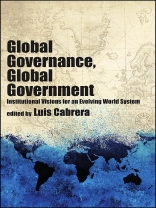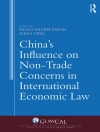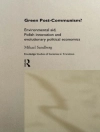Recent years have seen a remarkable resurgence in rigorous thought on global government by leading thinkers in international relations, economics, and political theory. Not since the immediate post-World War II period have so many scholars given serious attention to possibilities for global political integration.
This book will be of interest to students of international relations, political theory, international economics, secuity and gender studies. It pulls together some of the leading current thinkers on global government into a conversation about provocative global institutional visions. Chapters here explore whether a world state should be viewed as inevitable, ways in which global moral and political communities might be sustained, and reasons to reject world government in favor of improvements to governance in the United Nations and other institutions.
Cuprins
Acknowledments
1. Introduction: Global Institutional Visions
Luis Cabrera
2. Why a World State is Inevitable
Alexander Wendt
3. How Far Will International Economic Integration Go?
Dani Rodrik
4. Why World Government Failed after World War II: A Historical Lesson for Contemporary Efforts
Campbell Craig
5. Is a Global Ethic Possible?
David Ray Griffin
6. A Global, Community-Building Language?
Amitai Etzioni
7. Global Democracy, Self-Determination, and the Possibility of Exit
Christine Keating
8. Toward Humane Global Governance: Rhetoric, Desire, and Imaginaries
Richard Falk
9. World State and Global Democracy
Michael Goodhart
10. A Madisonian Argument for Strengthening International Human Rights Institutions: Lessons from Europe
Jamie Mayerfeld
11. Domination in Global Politics: Reflections on Freedom and an Argument for Incremental Global Change
Barbara Buckinx
12. Women’s Organizations and Global Governance: The Need for Diversity in Global Civil Society
Brooke Ackerly
Contributors
Index
Despre autor
Luis Cabrera is Senior Lecturer in Political Theory at the University of Birmingham in the United Kingdom. He is the author of
Political Theory of Global Justice: A Cosmopolitan Case for the World State and
The Practice of Global Citizenship.












